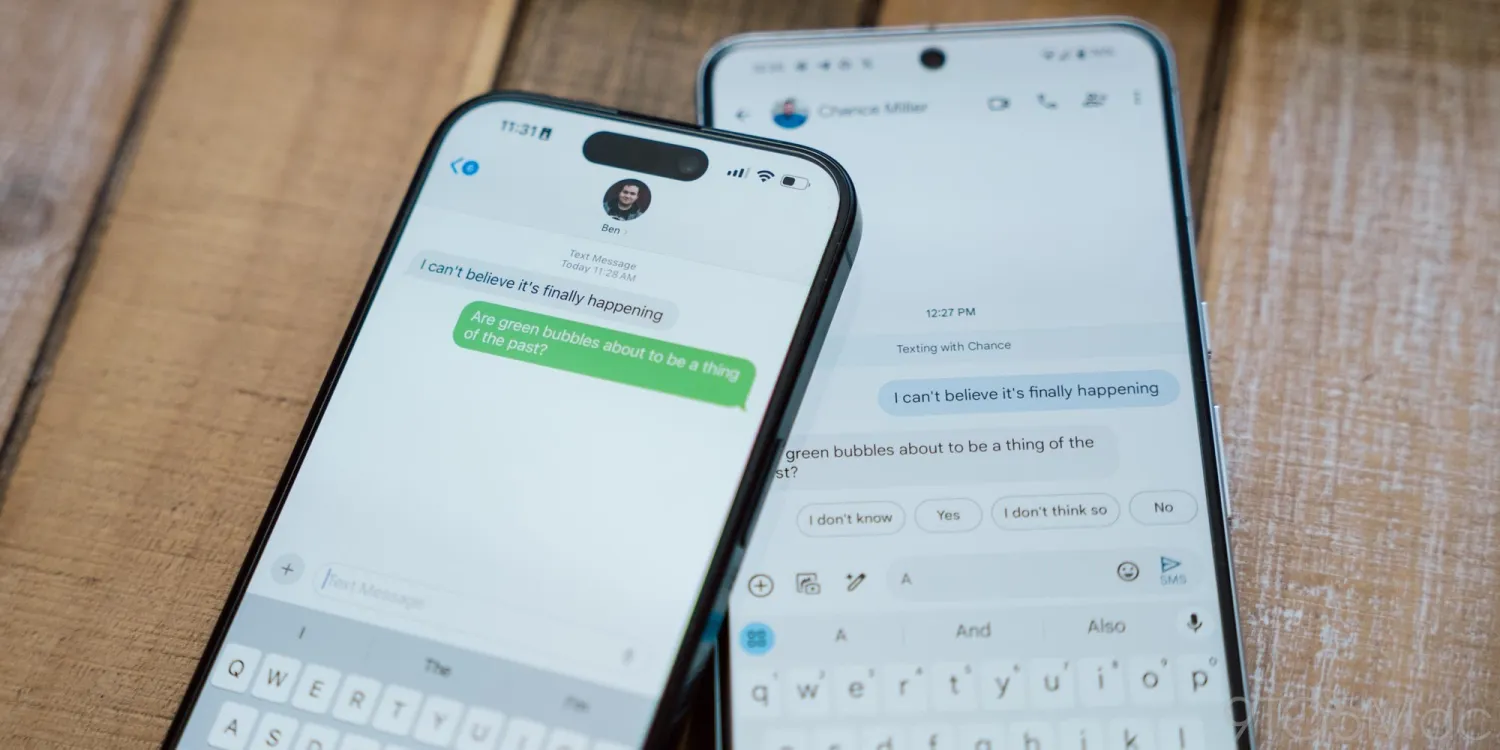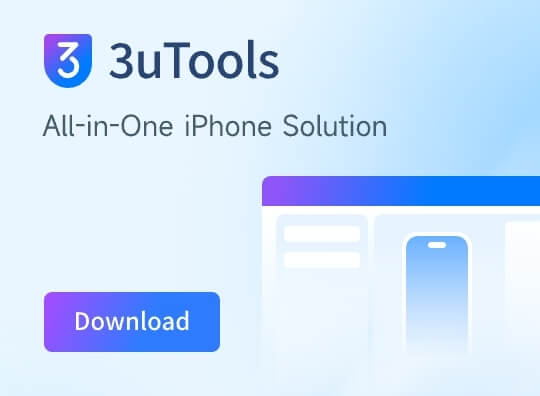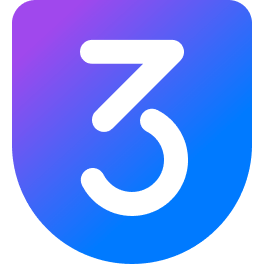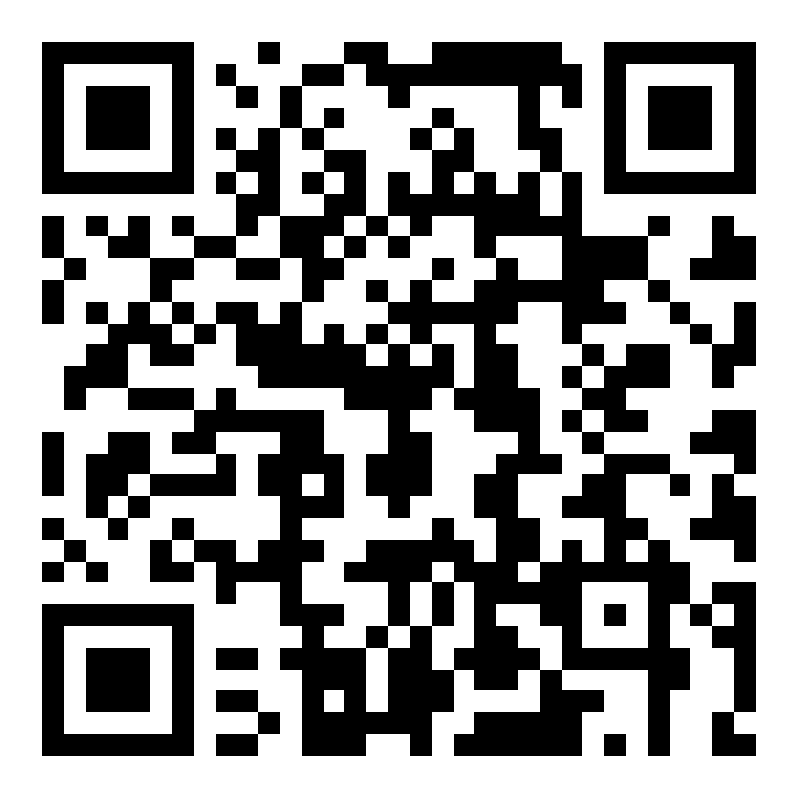Apple Announces that RCS Support is Coming to iPhone Next Year
11/17/2023
2096

In a surprising move, Apple has announced today that it will adopt the RCS (Rich Communication Services) messaging standard. The feature will launch via a software update “later next year” and bring a wide range of iMessage-style features to messaging between iPhone and Android users.
Apple’s decision comes amid pressure from regulators and competitors like Google and Samsung. It also comes as RCS has continued to develop and become a more mature platform than it once was.
RCS brings iMessage-style features to cross-platform texts
In a statement to 9to5Mac, an Apple spokesperson said that the company believes RCS will offer better interoperability for cross-platform messages.
- Later next year, we will be adding support for RCS Universal Profile, the standard as currently published by the GSM Association. We believe RCS Universal Profile will offer a better interoperability experience when compared to SMS or MMS. This will work alongside iMessage, which will continue to be the best and most secure messaging experience for Apple users.
RCS brings many iMessage-style features to cross-platform messaging between iPhone and Android devices. This includes things like read receipts, typing indicators, high-quality images and videos, and more.
Apple’s implementation of RCS will also give users the ability to share their location with other people inside text threads, the company says. Unlike regular SMS, RCS can work over mobile data or Wi-Fi as well.
But at the same time, iMessage isn’t going anywhere. It will continue to be the messaging platform used for all communication between iPhone users. RCS will simply supplant SMS and MMS and exist separately from iMessage when available. SMS and MMS will also continue to be available as a fallback when needed, Apple says.
This is not Apple opening up iMessage to other platforms. Instead, it’s the company adopting RCS separately from iMessage.
Apple also reiterates that iMessage is far more secure and privacy-friendly than RCS. iMessage is end-to-end encrypted, and Apple just took that up a notch with Advanced Data Protection for Messages in iCloud. Meanwhile, Apple says that RCS does not currently support encryption that is as strong as iMessage.
Apple’s decision to adopt RCS follows years of pressure from some of its competitors, including Samsung and Google. Until today, the company resisted that pressure and instead doubled down on iMessage. It has, however, rolled out some improvements to the SMS experience between iPhone and Android devices.
For example, Apple added better support for Tapbacks in iOS 16 for conversations between iPhone and Android users. With iOS 17, Apple also brought features such as threaded replies and message editing to iPhone users (but not Android users) in SMS group chats.
Finally, Apple says it will work with the GSMA members on ways to further improve the RCS protocol. This particularly includes improving the security and encryption of RCS messages. Apple also told 9to5Mac that it will not use any sort of proprietary end-to-end encryption on top of RCS. Its focus is on improving the RCS standard itself.
For comparison’s sake, Google’s implementation of end-to-end encryption is part of the Messages app on Android rather than the RCS spec itself.
9to5Mac’s Take
We’ve come a very long way since Tim Cook’s rebuttal of RCS back in 2022. At the time, Cook said that Apple hadn’t heard from many users “asking us to put a lot of energy” into bringing RCS support to the iPhone. “Buy your mom an iPhone,” Cook said when asked about the lackluster SMS experience.
Later that year, a report from Bloomberg said that Apple was not considering – at least at that time – adding RCS support to iPhone.
The elephant in the room is impending legislation in the European Union that could’ve ultimately required Apple to open up iMessage. Apple has pushed back against this legislation, the Digital Markets Act, arguing that iMessage is not big enough in Europe to qualify as a “gatekeeper service.”
Just last week, it was reported that Apple is set to appeal to the European Union about the inclusion of its App Store and iMessage services in the Digital Markets Act. Nonetheless, Apple is getting ahead of any potential regulatory problems with today’s announcement.
When RCS support launches later next year, the limitations of SMS and MMS will no longer haunt (most) messaging conversations between iPhone and Android users. Availability can still vary from carrier to carrier, but all three major US carriers support RCS, as do the vast majority of other carriers around the world.
As part of today’s announcement, Apple reiterates its support for other open standards. The company, for instance, has worked closely with the likes of Amazon and Google on the Matter smart home standard. It’s also worked together with the FIDO Alliance, including Microsoft and Google, on expanding support for Passkeys. Apple also played an integral role in developing the Qi2 wireless charging standard, which is built on top of MagSafe.
As of right now, there’s no word on whether the green bubbles will still be green. My money would be on: yes.
Is Apple right to finally cave to the pressure and adopt RCS, or should the company have held out longer? Let us know in the comments.
Source: 9to5mac












